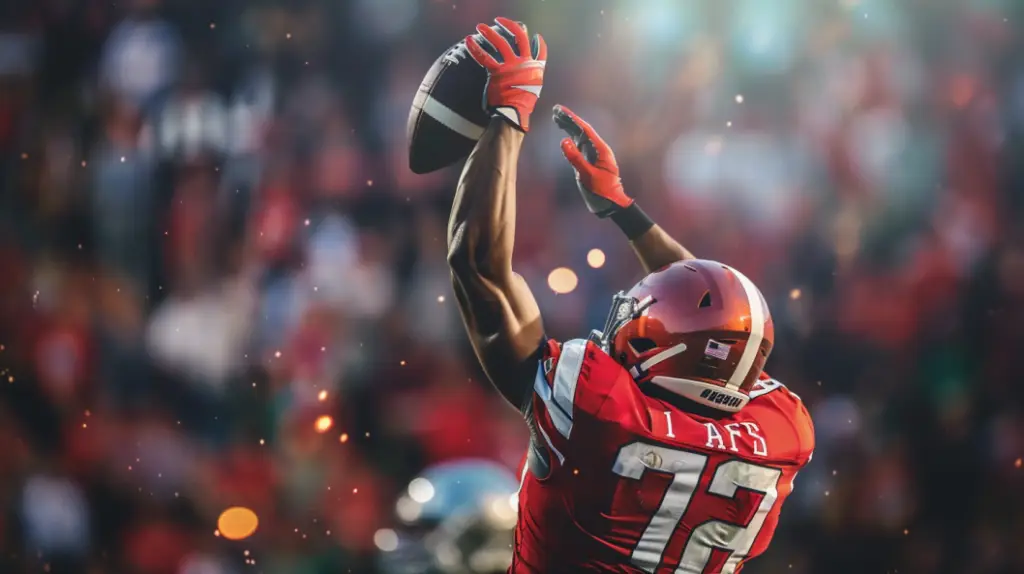Becoming a football scout involves a blend of passion for the game, keen observational skills, and a deep understanding of player evaluation. Football scouting is a crucial aspect of the football industry. It involves identifying and evaluating talented players who have the potential to succeed at the professional level. Scouts play a vital role in the recruitment process for clubs, helping them find the best players to strengthen their teams. Without scouting, clubs would struggle to identify and acquire the talent needed to compete at the highest level.
Understanding the Role of a Football Scout
A football scout is responsible for identifying and evaluating players who have the potential to succeed at the professional level. They are tasked with watching matches, attending tournaments, and analyzing player performances to determine their suitability for a particular club. Scouts must have a keen eye for talent and be able to assess a player’s technical skills, physical attributes, and mental capabilities.
Scouts need to possess certain qualities and skills to succeed in this role. They must have a deep knowledge of the game, understand different playing styles and tactics, and be able to identify players who fit into a specific system or style of play. Additionally, scouts need excellent observational skills, attention to detail, and the ability to judge a player’s potential accurately.
Building a Strong Knowledge Base of the Game
Having a strong knowledge base of the game is essential for football scouts. They need to understand the intricacies of football, including different formations, playing styles, and tactical approaches. This knowledge allows scouts to assess how well a player fits into a particular system or style of play.
To improve their knowledge of the game, scouts can watch matches regularly, both live and on television. They should analyze different teams and players, paying attention to their movements on and off the ball, decision-making abilities, and overall performance. Additionally, scouts can read books and articles and watch documentaries about football to gain insights from experts in the field.
Developing a Network of Contacts in the Industry
Networking is crucial in the football industry, and scouts must build a strong network of contacts to succeed. Having connections with coaches, agents, and other industry professionals can provide valuable information and insights about players and potential opportunities.
Scouts can attend football conferences, seminars, and events to meet and connect with people in the industry. They should also try to build relationships with coaches, agents, and players, as they can provide valuable information about talented individuals. Additionally, scouts can join professional organizations or online communities dedicated to football scouting to connect with like-minded professionals.
Attending Matches and Tournaments
Attending matches and tournaments is crucial to a football scout’s job. It allows them to watch players in action, assess their performance under different circumstances, and identify potential talent. By watching matches live, scouts can observe players’ movements off the ball, their decision-making abilities, and their overall contribution to the team.
Scouts should focus on specific players they are interested in evaluating during matches and tournaments. They should take notes on their performance, paying attention to their technical skills, physical attributes, and mental capabilities. Scouts must also watch players in different situations, such as high-pressure games or against tough opponents, to see how they perform under challenging circumstances.
Utilizing Technology and Data Analysis

Technology and data analysis have become increasingly important in football scouting. Scouts can use various tools and software to analyze player performance, track statistics, and identify patterns or trends. This allows them to make more informed decisions about a player’s potential and suitability for a particular club.
Scouts can use video analysis software to review match footage and analyze player performances in detail. They can also utilize data analysis tools to track statistics such as passing accuracy, goals scored, or distance covered during a match. Scouts can better understand a player’s abilities by combining these technological tools with their observations.
Identifying Key Traits and Characteristics in Players
When scouting players, scouts need to identify key traits and characteristics that are essential for success at the professional level. These traits can vary depending on the position and playing style, but some common ones include technical skills, physical attributes, mental strength, and tactical awareness.
Scouts should look for players with excellent ball control, passing accuracy, and shooting ability. They should also assess a player’s physical attributes, such as speed, strength, and agility, as these can greatly impact their performance on the field. Additionally, scouts should evaluate players’ mental capabilities, decision-making abilities, composure under pressure, and ability to adapt to different game situations.
Building Relationships with Players and Agents
Building relationships with players and agents is crucial for football scouts. By establishing trust and rapport with players and agents, scouts can gain valuable insights into a player’s character, work ethic, and potential availability. This information can greatly influence a scout’s evaluation of a player and their suitability for a particular club.
Scouts should approach them professionally and respectfully to build relationships with players and agents. They should attend training sessions or matches where the player is involved to observe them in person and initiate conversations. Scouts should also maintain regular communication with players and agents to stay updated on their progress and any potential opportunities.
Communicating with Club Management and Coaches
Effective communication with club management and coaches is essential for football scouts. Scouts need to convey their evaluations and recommendations clearly and concisely to ensure that the club understands the potential value of a player. They should be able to articulate their observations, provide supporting evidence, and explain how a player fits into the club’s system or style of play.
Scouts should establish open lines of communication with club management and coaches, attend meetings, or provide regular reports on their findings. They should be receptive to feedback and be willing to adjust their evaluations based on the club’s specific requirements. By maintaining strong communication, scouts can ensure their recommendations are taken seriously and increase their chances of success.
Negotiating Contracts and Transfers
Negotiating contracts and transfers is another important aspect of a football scout’s role. Scouts must understand contract negotiations, transfer fees, and player contracts to ensure the club gets the best deal possible. They should be able to negotiate with agents, players, and other clubs to secure the best terms for their club.
Scouts should stay updated on the latest transfer market trends, player evaluations, and contract terms to negotiate contracts and transfers effectively. They should be able to assess a player’s market value based on their performance, potential, and current market conditions. Additionally, scouts should have good negotiation skills, including the ability to persuade, compromise, and find mutually beneficial solutions.
Staying Up-to-Date with the Latest Trends and Developments in Football
Staying up-to-date with the latest trends and developments in football is crucial for football scouts. The game constantly evolves, with new tactics, playing styles, and training methods emerging regularly. Scouts need to stay informed about these developments to ensure that they can accurately evaluate players’ potential and suitability for a particular club.
To stay up-to-date, scouts can read football magazines, websites, and blogs that provide insights into the latest trends and developments in the game. They can also attend conferences or seminars where industry experts share their knowledge and experiences. Additionally, scouts should watch matches from different leagues and countries to gain exposure to different playing styles and tactics.
Football scouting plays a vital role in the football industry by identifying and evaluating talented players who have the potential to succeed at the professional level. Scouts must possess a deep knowledge of the game, excellent observational skills, and the ability to judge a player’s potential accurately. They must also build a strong network of contacts, attend matches and tournaments, utilize technology and data analysis, and identify key traits and characteristics in players.
Building relationships with players and agents, communicating effectively with club management and coaches, and negotiating contracts and transfers are important aspects of a football scout’s role. Additionally, staying up-to-date with the latest trends and developments in football is crucial to ensure that scouts can accurately evaluate players’ potential and suitability for a particular club. Football scouting is a challenging but rewarding profession requiring knowledge, skills, and networking abilities.
If you’re interested in learning more about football scouting, you might find this article on Kicka Football’s website intriguing. “The Evolution of Football Scouting: From Traditional to Data-Driven Approaches” delves into the changing landscape of scouting techniques and the increasing reliance on data analysis in player evaluation. This insightful piece provides valuable insights for aspiring football scouts looking to stay ahead of the game. Check it out here.






